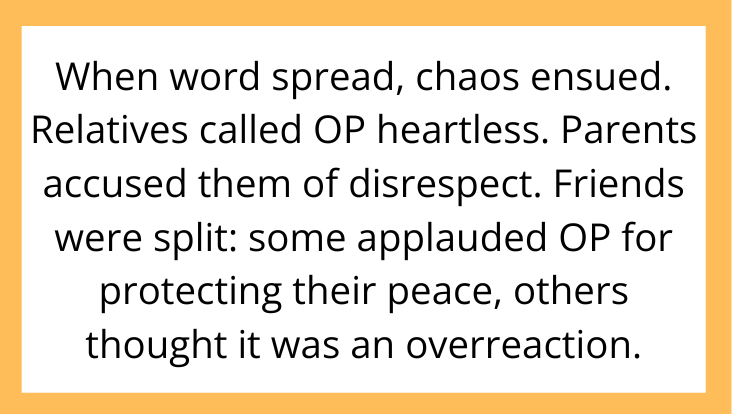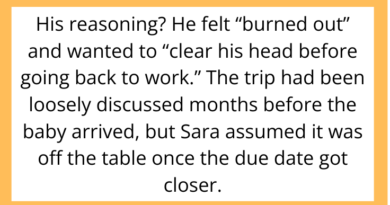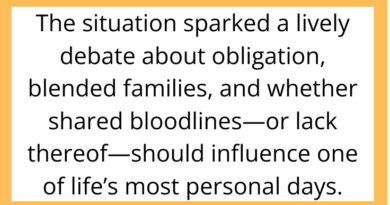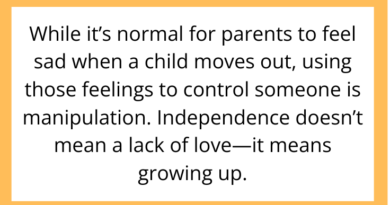AITAH for Not Inviting My Parents to My Wedding Because They Never Supported My Relationship?
Weddings are supposed to be a celebration of love and unity, but what happens when the people who raised you have never accepted your partner? A recent post on r/AITAH shared a story that sparked heated debate: the original poster (OP) decided not to invite their parents to their wedding after years of tension and criticism toward their relationship.
Is it cruel to exclude your own family from such an important milestone, or is it an act of self-preservation when your happiness has never been respected? Let’s dive into this scenario, explore both sides, and consider how to navigate family estrangement in the most meaningful moments of life.
The Scenario: Years of Disapproval Finally Reaching a Breaking Point

OP explained that for nearly a decade, their parents had been openly critical of their partner—making snide remarks at family gatherings, refusing to acknowledge anniversaries, and even telling OP they were “throwing their life away.” Despite efforts to set boundaries and have honest conversations, nothing changed.
When OP got engaged, they decided they didn’t want negativity overshadowing their big day. They sent invitations to siblings, extended family, and close friends—but deliberately left their parents out.
When word spread, chaos ensued. Relatives called OP heartless. Parents accused them of disrespect. Friends were split: some applauded OP for protecting their peace, others thought it was an overreaction.
Why Excluding Family Can Feel Like the Only Option
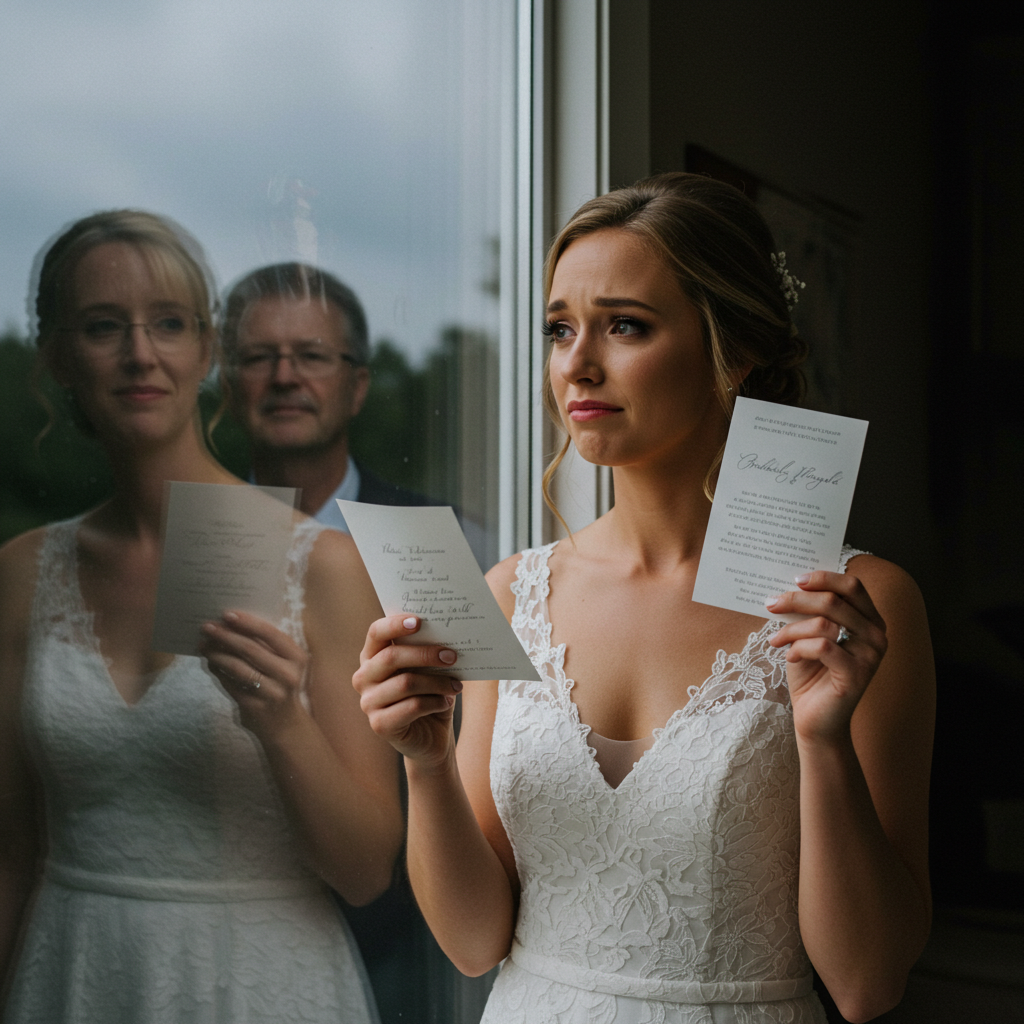
In an ideal world, everyone would put aside differences and come together for milestones. But in reality, some relationships are so toxic that inclusion only breeds resentment and pain. Here are a few reasons OP’s decision resonates with many:
-
Emotional safety matters: A wedding should feel joyful, not stressful.
-
Boundaries are healthy: Sometimes the only way to enforce respect is to withdraw access.
-
Patterns don’t magically change: If your parents have spent years dismissing your relationship, a wedding invitation doesn’t erase that history.
While exclusion is a drastic measure, it can also be an act of self-care.
The Other Side: Why Family Feels Betrayed

Of course, there’s another perspective: for parents, being left out of a child’s wedding is devastating. They may feel:
-
Ashamed: Facing judgment from their community and extended family.
-
Heartbroken: Feeling their child has chosen a partner over them.
-
Blindsided: Even if the relationship was strained, some expect reconciliation at big milestones.
These feelings don’t automatically make the parents right, but they do explain why emotions can run so high.
How to Communicate Difficult Decisions with Compassion

If you ever have to exclude family from a major life event, communication is key—even when you know it won’t be received well. Here’s how to approach it:
-
Be clear and direct: Vague explanations only create confusion.
-
Focus on your feelings: Use “I” statements to avoid blaming.
-
Offer a path forward: If you’re open to reconciliation later, say so.
-
Stand firm: Once you’ve made your choice, don’t waver under guilt or pressure.
You’re not responsible for other people’s reactions when you enforce your boundaries.
What the Community Said

This AITAH post went viral, gathering thousands of comments. A strong majority sided with OP, saying no one should have to invite people who actively undermine their happiness. Others pointed out that excluding family can create lifelong rifts that are hard to repair.
The main takeaway? There’s no perfect answer. Each situation depends on your values, your history, and your tolerance for conflict.
Final Thoughts: Choosing Peace Over Obligation

Not inviting your parents to your wedding isn’t about revenge. It’s about creating an environment where you feel respected and loved on one of the most important days of your life.
If you’re grappling with similar questions, remember:
-
You’re allowed to protect your mental and emotional health.
-
You don’t owe access to people who consistently disrespect you.
-
You can love someone and still decide their presence isn’t healthy for you.
